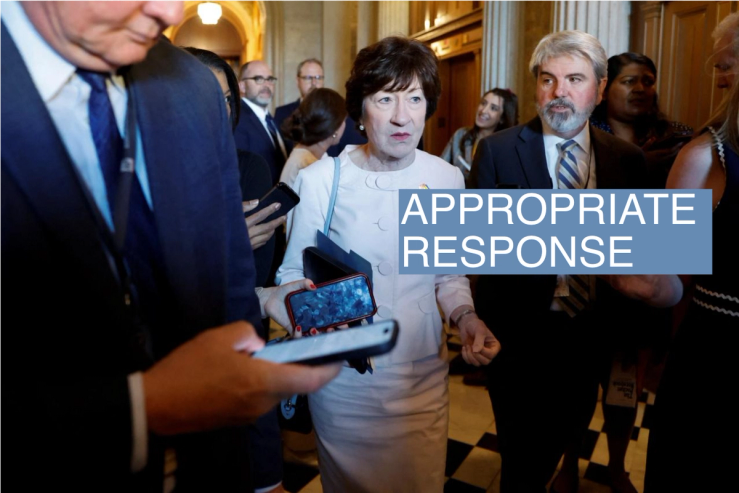The News
The signs of a split between House and Senate Republicans are growing as Capitol Hill barrels toward yet another major fight over the federal budget later this year.
Facing pressure from hard right lawmakers, House Republicans have begun writing budget bills for next year that on paper would spend almost $120 billion less than the amounts outlined in the debt ceiling deal Congress passed this month, setting the stage for another showdown with Democrats in the Senate and the White House that has already prompted speculation about a potential government shutdown in the fall.
But Republicans on the Senate appropriations committee aren’t showing any interest in going along with the House’s effort.
“If you propose a compromise you need to tell the truth and tell people exactly what the compromise is,” Sen. John Kennedy of Louisiana, a GOP appropriator, told Semafor. “I can tell you that senators are tired of getting the compromise, voting for it or even not voting for it, and finding out later that wasn’t the truth.”
Sen. Susan Collins of Maine, the panel’s ranking GOP member, said last week she was “surprised” by the House’s move. On Thursday, Collins and Washington Sen. Patty Murray, the committee’s Democratic chair, announced plans to begin marking up appropriations bills at the levels contained in the debt ceiling bill.
“[W]e are determined to make sure the Senate’s voice is heard in this process,” the pair said in a joint statement.
Other members of the panel told Semafor they expected to stick to the terms laid out in the borrowing limit law.
“I feel we struck an agreement that we will write to those numbers,” said West Virginia Sen. Shelley Moore Capito. Alaska Sen. Lisa Murkowski warned that the lower chamber’s efforts to lowball the debt deal could trip up Congress’s effort to reach an agreement on 12 separate budget bills, which lawmakers are attempting to do for the first time in 27 years. “It’s not going to be easy, given what we’re seeing out of the House right now,” she said.
It’s a significant turnaround from the debt ceiling fight, where Senate Republicans lined up to support House Speaker Kevin McCarthy — a show of unity that gave Republicans more leeway in their fight with the White House.
Asked if House GOP members could expect the same backing from their upper chamber colleagues as during the debt ceiling fight, a Senate Republican aide was dismissive.
“If by ‘same amount of help’ you mean ‘stay out of the way again,’ the answer is no,” the aide said.
In this article:
Joseph’s view
The fact that Senate Republicans are already distancing themselves from the House’s latest effort to cut the budget is yet another sign that the next chapter of Capitol Hill’s spending fight could look like a rehash of the debt limit brawl that sucked up so much oxygen in Washington the first half of the year.
House Republicans started that process by drafting what amounted to a messaging bill that stood little chance in the Democratic-led Senate. McCarthy and his top lieutenants then used them as a jumping off point to negotiate relatively mild compromise legislation that passed with heavy help from Democrats.
Already, some moderate Republicans are predicting a replay.
“We’ll produce conservative approps bills out of the House, but we’re in denial if we think the Senate or president won’t have a say,” Rep. Don Bacon of Nebraska told Semafor. “It won’t be pretty, but we’ll eventually find a consensus bill and that will pass.”
Without backup from the Senate, Republicans in the lower chamber could find themselves with even less leverage in talks than last go-round, especially if they find themselves trying to make the public case for their position in the midst of a shutdown fight.
Room for Disagreement
House hardliners say they aren’t particularly worried about their upper chamber colleagues, or the possibility of a government shutdown.
“I’m tired of ‘tomorrow we’ll cut.’ I’m tired of ‘the Senate won’t pass it,’” Rep. Ralph Norman, R-S.C. said earlier this week. “I’m not in the Senate, and today is a real day.”
Kadia Goba contributed reporting.


